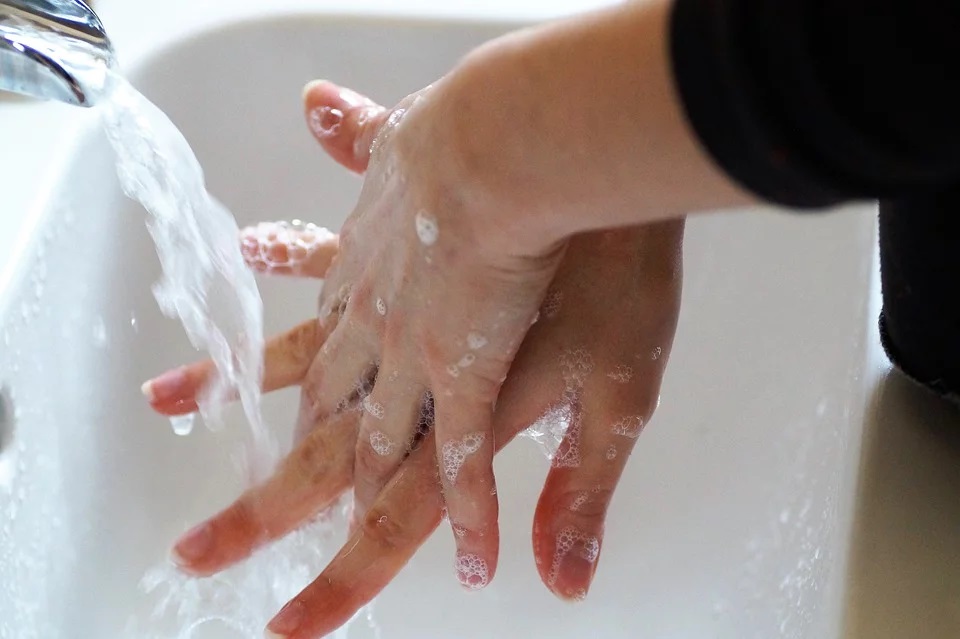Stoneleigh are following the Government and The World Health Organisation’s guidance on how businesses and employers can help to stop the spread of the new coronavirus disease.
How does coronavirus spread?
When someone who has COVID-19 coughs or exhales they release droplets of infected fluid. Most of these droplets fall on nearby surfaces and objects – such as desks, tables or telephones.
People could catch COVID-19 by touching contaminated surfaces or objects – and then touching their eyes, nose or mouth. If they are standing within one meter of a person with COVID-19 they can catch it by breathing in droplets coughed out or exhaled by them. In other words, COVID-19 spreads in a similar way to flu.
Preventing coronavirus in the workplace
The guidance stresses that employers and their employees should start taking the following measures now, even if COVID-19 has not arrived in the communities where they operate:
- Make sure your workplaces are clean and hygienic.
- Surfaces (e.g. desks and tables) and objects (e.g. telephones, keyboards, steering wheels and hand controls) need to be wiped with disinfectant regularly.
- Employees should stay at their own desks minimising any interaction with other personnel’s telephones or equipment.
- Ensure regular and thorough hand-washing by employees, contractors
and customers.
- Use washing facilities and sanitizing hand rub dispensers as often as possible especially before meals;
- Follow the display posters promoting hand-washing;
- Inform the company if sites do not have access to places where they can wash hands with soap and water.
- Promote good respiratory hygiene in the workplace.
- Follow the advice and notices on coughs and sneezes, bin the tissue and wash hands
- Ensure a 1m minimum distance between other employees, contractors and customers;
- Ventilate confined spaces such as vehicles;
- The company will minimise travel as much as possible and will
advise employees on travel plans before going on business trips. The
company will:
- Keep meetings to a minimum;
- Use other technologies for communications such as Teams/Skype etc;
- Reduce contact and retain a 2m distance from other personnel;
- Employees should be advised that if COVID-19 starts spreading in
your community anyone with even a mild cough or low-grade fever (37.3 C or
more) needs to stay at home.
- Employees will be able to count this time off as sick leave.
- Statutory Sick Pay (SSP) will be paid immediately and all payments will be made as per the Government guidelines
- Travel is an integral part or the company’s work which includes NHS England and NHS Wales. Due to the current climate, work in these areas will take preference over existing jobs and to ensure continuity, the company will ensure that:
- Travel will be minimised as much as possible;
- Hotels and bookings will be made only if there is confirmation that rooms are deep cleansed;
- Alternative accommodation arrangements will be made where possible;
- Hospital areas worked in are confirmed free from Covid-19;
The guidance goes on to advise on procedures for employees who travel (before travelling, during and after), and sets out advice for getting a business ready should COVID-19 arrive in the workplace. It is stressed that simple a precautionary measure and planning can make a big difference. Action now will help protect you and the company.
The role the we all can play:
Everyone can help support the UK’s response by:

- Following public health authorities’ advice, for example on hand washing;
- Reducing the impact and spread of misinformation by relying on information from trusted sources;
- Checking and following the latest FCO travel advice when travelling and adhering to travel plans;
- Ensuring you and your family’s vaccinations are up to date as this will help reduce the pressure on the NHS/HSCNI through reducing vaccine-preventable diseases;
- Checking on elderly or vulnerable family, friends and neighbours using NHS 111 (or NHS 24 in Scotland or NHS Direct Wales) (including online, where possible), pharmacies and GPs responsibly, and go to the hospital only when you really need to;
- Being understanding of the pressures the health and social care systems may be under, and receptive to changes that may be needed to the provision of care to you and your family;
- Accepting that the advice for managing COVID-19 for most people will be self- isolation at home and simple over the counter medicines;
- Checking for new advice as the situation changes.
Delaying the spread of the disease requires everyone to follow the advice set out in this document and the UK Governments guidelines. The benefits of doing so are that if the peak of the outbreak can be delayed until the warmer months, the risk of overlapping with seasonal flu and other challenges (societal or medical) that the colder months bring can be significantly reduced
